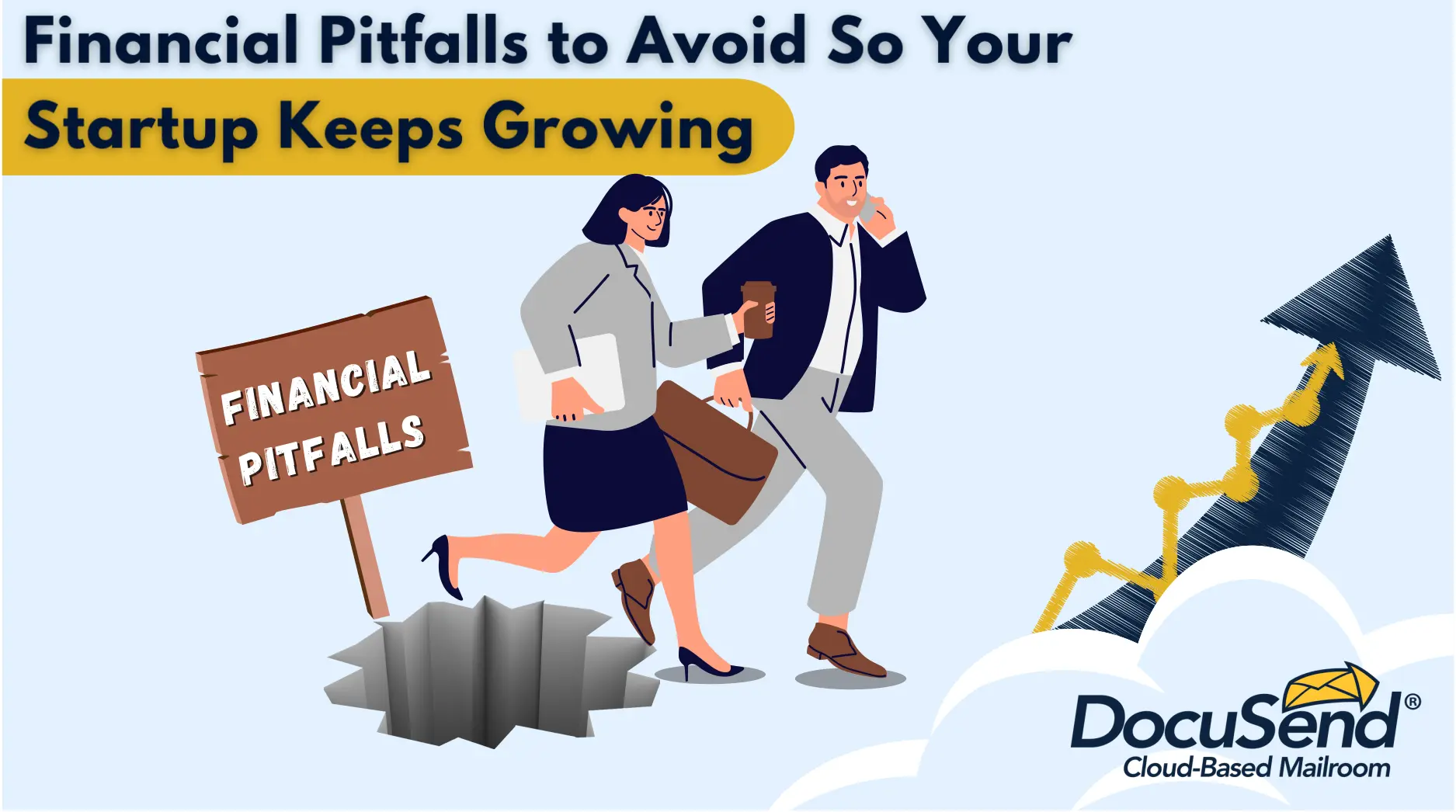Financial Pitfalls to Avoid So Your Startup Keeps Growing

As a startup grows, it’s not uncommon to struggle with financials from time to time. It’s also likely that every founder will face at least a few forks in the road when they need to make significant financial decisions that could impact long-term growth.
If your business is doing well, it helps to know what could potentially cause financial turmoil. Take a look at some of the most common pitfalls startups face on their way to success, and how to avoid them.
1. Lack of Initial Funding
It’s hard to build a big company without having the financial resources to do so. In some situations, it starts with lack of initial funding—or struggling to find it. Yet it is more common for a startup to get an initial round of funds and then to use up those funds too quickly, leaving the company running on minimal funds within months.
In either case, without sufficient funds, startups struggle with even the most basic of services. It is essential to protect the funds you have to allow your business the time to get profitable, especially if you are bootstrapping the company’s initial growth.
How to Avoid Running Out of Money
It sounds simplistic, but being aggressively focused on budgeting your startup funds from the beginning is by far the most critical step you can take to avoid depletion. Don’t plan to use that initial funding round to support nongrowth needs. Be sure to stay on top of cash flow projections so you always know where your company is financially. By keeping an eye on these projections, you’re less likely to run out of capital.
Paying close attention to what you are spending gives you insight into what’s working and what’s not, too. Most business owners are less likely to spend all their funding too quickly when they are managing it dollar for dollar.
2. Going Big Right Away
There’s so much in which to invest that could help your company flourish from the start. At the same time, those big investments could falter, causing financial strain on the business too soon for it to recover. When it comes to big purchases, spending too much right away isn’t wise.
It's tempting to buy the most advanced equipment or to launch a big marketing and branding campaign. Your goal may be to get ahead of the competition or to build your brand fast. The problem is, you need to look further into that investment. Is it going to produce a big enough return right now to pay for the initial cash outlay? If not, can your company continue to move and grow without those funds in the bank?
How to Avoid Making the Wrong Big Decisions
Small and growing is better than being broke and stuck in an unprofitable business. The best way to avoid this snare is to build up to more substantial purchases as your company’s revenue allows for it.
Avoid the temptation to go big right out of the gate—especially if there is any risk involved. Take the time to carefully consider any expenditures to determine how well they fit into your budget. Then, when you are ready to move forward, ensure that your purchase is truly worth the price tag and is the best option for your company.
3. A Lack of Planning
You have big dreams and goals for your business, but are you planning for them? When it came to starting a company, you probably did a lot of legwork already. You had to plan for the opening of your business, how to pay employees, and what the prices of your products and services would be. It took a great deal of planning to get to the point you are at right now. Now that you are open, don’t stop planning.
An easy mistake that startups make is simply keeping the business rolling forward without a clear direction. If you want your company to move toward growth, you’ll need to have done the work to understand the opportunities, risks and costs of expanding. Companies that wish to grow but lack sufficient planning often find themselves blindsided by unexpected events, costs and risks.
For companies not necessarily on a growth projection—with no desire to expand quickly—it’s also common to face difficulty when a sudden problem arises that drains your financial reserves. Changes in the economy or the industry could also create considerable problems for your business.
How to Avoid Planning Failures
Your business plan must remain up to date. Revisit this plan at least quarterly to ensure that it is an accurate representation of your business. Regularly monitoring industry changes and economic conditions helps you tweak your business model as necessary. Implementing this strategy enables you to remain competitive, even as these unexpected events occur.
Another key strategy is to allow some level of flexibility within the operation of your financial management. If your business’s financials and business model have some adaptability to them, you can weather virtually any event that occurs—minimizing the impact of sudden change.
4. Mixing Personal and Business Finances
Small business owners and entrepreneurs put a lot of hard work and money into their business. Most of the time, this takes a significant amount of personal investments to get going. You may buy items for the company out of personal accounts, for example. When personal and business finances mingle, it can create a financially difficult situation—whether it comes to paying taxes, incorporating the company or managing liability risks.
Without any insight into the separation of personal and business funding, it puts investors at a loss as to helping you later. They need to see accurate figures that specifically represent the company’s financials, without any personal accounts feeding into or out of the business.
How to Avoid Unclear Investments
Establish the business’s credit history to avoid using your personal credit for business needs. Additionally, balance accounts on a routine basis, making payments to yourself clearly marked as such.
By taking this step to separate the business from personal funds, you help establish the company financially through credit as well as a clear, proven financial statement. Whether you use software or a simple bank register, the goal here is to draw a clear line to keep your business separate from personal income and expenses.
Each one of these traps is avoidable. If your business is getting off the ground, get these areas straight immediately. If you are operational and have made some of these mistakes, you can still repair them, in most cases. It’s essential to reach out for help if your business is facing financial turmoil, too. The sooner you can see the problem, the faster you can respond with more solutions for getting your business back on track.

